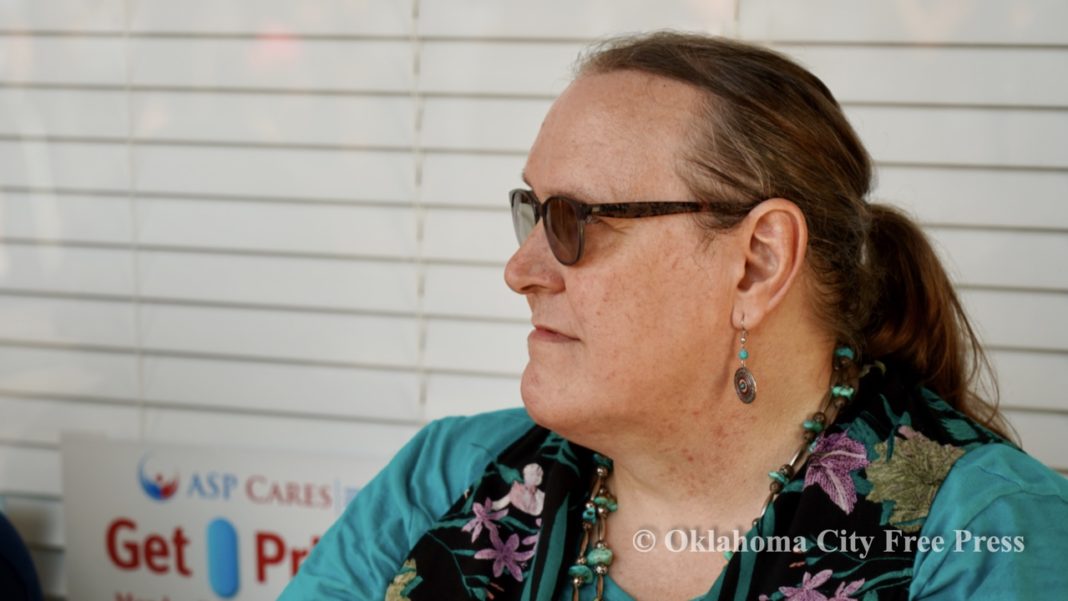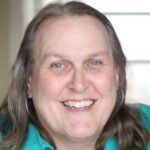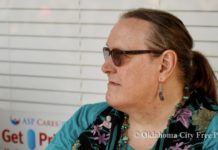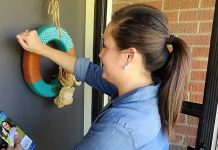Last Updated on January 5, 2024, 12:54 AM | Published: March 11, 2022
Paula Sophia Schonauer, LCSW, continues a serial memoir. If you haven’t read the earlier parts of this series, follow the links at the bottom of this page.
“To give someone a blessing is the most significant affirmation we can offer.”
– Henri Nouwen
Near the end of 7th grade, Pastor Jon visited the classroom during our daily religion class. He wore his black suit with a clerical collar, but he had long hair for a pastor, a thick mustache. He looked a little like a clean-cut hippy, his manner flamboyant, his preaching dramatic, and he loved to sing the canticles in church, his booming voice resonating through the sanctuary, a performance rather than a prayer. His presence among us stirred some excitement. It was not common for one of the pastors to visit classrooms during school time.
“I’m here to congratulate you for completing your journeys toward confirmation,” Pastor Jon boomed, raising his arms in a magnanimous gesture, an evangelical embrace.
Most of the class had been participating in confirmation education during the school year, getting ready for our first Communion. A few of the students had belonged to different churches, Episcopal and Catholic, but the rest of us were set to become full members of Redeemer Lutheran Church, Missouri Synod, in Cuyahoga Falls, Ohio.
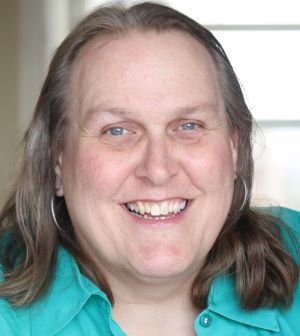
At the time, I did not understand the difference between the churches. It seemed they all worshiped the same Jesus, said many of the same prayers, sang many of the same hymns, and they participated in the same rituals with some minor differences here and there. For example, an Episcopal Church I had once visited had one, big cup of wine which everyone sipped, the priest wiping the edge of the cup with a white cloth before offering it to the next person. When I visited a Catholic Church with one of my neighbors, the Seikel family across the street, they said the Lord’s Prayer like we did, but at the end, they did not say, “For Thine is the Kingdom, and the Power, and the Glory, forever and ever.”
I remember continuing the prayer after everyone else had stopped. Mr. Seikel nudged my shoulder, and my words trailed off, ending with a feeble and embarrassed, “Amen.” I had no idea some churches were “conservative” while others were “liberal,” and I did not know that many in my church thought of the Catholic Church as an apostate institution. To me, a Christian was a Christian.
Pastor Jon began quizzing us about Bible facts, asking us to name the books of the Old Testament, the New Testament, the difference between the Patriarchs and the Prophets. Pretty much everyone could say the books of the Bible, a few were able to name the Patriarchs, even fewer the Prophets. He asked us about the Covenant of God, about the Law, and the fulfillment of the Law.
There was an awkward silence. I knew the answer, though, because I had pondered this concept when we had discussed it in Confirmation class weeks before. “Jesus is the fulfillment of the law,” I said.
“Why?”
“Because he was the Lamb of God, and he died for our sins.”
“Very good.”
Pastor Jon focused on me, looking at me with a quizzical smile. I thought I could read his mind. Wasn’t I the kid who reported “no attendance” week after week when our teachers asked us about our participation in church and/or Sunday School? But that was never my fault. I would rather have gone to church most Sundays instead of babysitting my siblings while my parents overslept, watching Popeye cartoons on Channel 43 – the only cartoons on Sunday. I hated the humdrum of Sunday mornings, trying to keep my siblings quiet, the tension I felt while dreading the anger of my parents, especially Dad’s, if we did something to disturb them.
Pastor Jon walked behind me, placing a hand on my shoulder. His fingers dug into the space between my shoulder and collarbone, a slight massage, but it hurt.
“Who was Enoch?”
“He was a righteous man taken by God before he died,” I answered, thinking Pastor Jon had been asking me alone, but a couple of other students answered as well.
“Hmm…”
“Who was Jephthah?”
The class was silent, but I knew the answer. It bubbled within me, but I was suddenly afraid of drawing attention to myself. My excitement caused me to squirm. Pastor Jon’s fingers dug deeper, and I winced.
“I know it!” I said with more emphasis than I meant, as much to exclaim the pain in my shoulder as to affirm my knowledge.
“Yes?”
“Jephthah sacrificed his daughter to God.”
“Why?”
“Because he won a battle and promised to sacrifice the first thing that greeted him when he returned home.”
Pastor Jon removed his hand from my shoulder, and I felt immediate relief.
“But why did God let that happen?” I asked. I had wanted to know why God intervened with Isaac but let Jephthah’s daughter die for over two years at that point.
“Who are we to question the will of God?”
“But Pastor Jon,” I pleaded. “Wasn’t his daughter worth saving?”
Pastor Jon laughed. “You ask a lot of questions, but that’s good… to a point.”
“Oh,” I said, feeling shame. I looked down. It seemed I was always doing something wrong.
“I’m impressed, though. It does seem that you know your Bible, and that is quite an accomplishment.”
I felt a smug sense of piety, a glowing righteousness that was as uncomfortable as it was affirming. Did this mean I was a better Christian than my peers?
When I got home from school later that week, Mom was sitting on the front porch smoking a cigarette. She blew a cloud of smoke and flicked her cigarette butt into the yard, landing among a dozen others where it smoldered, a thin trail of smoke rising above the grass and dirt.
“Do you have something to tell me?”
I could not discern her tone of voice, less malevolent than it was at times but not quite cheerful. My mind raced. Had I done something wrong, forgotten a chore, got a bad report from school, or had my brother or sister tattled on me about something I had forgotten?
“I don’t know.”
“What do you mean you don’t know?”
“Um…?”
“I got a call from Pastor Jon. He and some church people are coming over tonight. They want to talk to me… about you.”
“What?”
“So, tell me what’s going on? Did you do something?”
I felt a bit panicky, sure Mom was going to ground me again. What was Pastor Jon’s problem with me?
“Mom, I really don’t know. I swear to God.”
Mom pulled another cigarette from a little snap purse, a lighter from a pouch on the side. She lit the cigarette and took a deep drag. She held the cigarette between her fingers, and she put her face in her hands. The red coal of the cigarette singed a strand of Mom’s hair, causing a slight line of smoke, but it disappeared quickly.
“Get in the house and do your homework,” which was code speak for you’re going nowhere this evening.
Pastor Jon and a couple of church elders came over after dinner. They sat in our living room, now carpeted wall-to-wall with short fibers of blue mixed with slightly longer paisley-shaped patterns. We still had our old furniture, nicked, and scratched; one end of the couch propped up with a brick.
Mom had put on clean clothes, a pair of slacks and a gray pull-over. She had even bothered to comb her hair and apply makeup. She sat in her usual chair, shaped like a half-moon, and upholstered with light green fabric that felt like velvet but had lost its sheen a long time before.
Mom shooed me away, and I went upstairs, sitting on my bed to wait for the verdict.
After a long time, Mom summoned me downstairs. Pastor Jon and Mrs. Schuler smiled at me. Mr. Hackman looked at me, his face expressionless but not hostile, bald head glistening, glasses halfway down his nose. Mom looked pleased, smiling without showing her teeth.
“We would like you to deliver a message on a Sunday,” Pastor Jon said. “Something about your journey in faith.”
I felt a surge of pride. I was not in trouble. I was being praised for doing something right, and they wanted me to preach in church. “You mean preach?”
“Well, not exactly. More like a testimony about how you came to Jesus.”
“Oh.”
Mrs. Schuler, the kindergarten teacher at school, smiled at me. She had distinguished gray hair with a fastidious style, carefully placed curls. She had horn-rimmed glasses with a chain fastened on both sides. The chain glistened in the light.
“It seems that our experiment worked.”
I remembered Dad’s boast years before regarding my admission into the school, an opportunity for his children to become Christians. So, it seems that knowing the Bible makes you a Christian, and if someone is a Christian, then that means he is not going to hell. A bit of light broke through my confusion about religion, bringing a sense of worthiness.
On Friday, instead of religion class, I was sent to the head pastor’s office. He wanted to talk to me. When I arrived, he was sitting behind his desk, varnished with a light brown veneer, austere but sturdy, substantial. He had a bookcase behind him full of thick volumes, some old, some new, the wood matching his desk. Unlike Mr. Haus’ office, Pastor Boelker’s office felt warm and inviting. Maybe it was his smile.
“Hi, Paul. Please, sit down.”
We talked for the next hour, a captivating discussion about faith and religion. He showed me a book written in Hebrew and told me how the pages are in reverse of books written in English.
“It’s because they write and read from right to left.”
He read in Hebrew while pointing at the words written with an alphabet, nothing like anything I had ever seen. He also showed me a Bible written in Greek, from left to right like English, but the letters were not the same. Greek sounded different than Hebrew but still very foreign. Just the sound of those words, both Hebrew and Greek, sounded holy to me, and I suddenly had a deep desire to understand those languages, to read the scriptures in their original form.
“Where did you learn how to speak Hebrew and Greek?”
“In seminary.”
“What’s seminary?”
“It’s a place people go to school to study the Word of God and become pastors.”
I felt suddenly excited. “I want to go to seminary.”
Pastor Boelker smiled, a shiny light in his glasses, almost like a spirit. I saw my reflection in his glasses, my image and light together.
“I want to be a pastor,” I said.
Confessing this felt right, truer than anything I had ever said. I wanted to know those languages, to understand the Word of God as spoken by the Patriarchs and Prophets, by Jesus himself, though it would be several years before I learned that Jesus had spoken Aramaic.
Previous episodes
- Manhood, from the inside out — Memoir and Mythology
- Part 2 — Cubby Hole
- Part 3 — Magic Carpet Cocoons
- Part 4 — Snips and Snails and Puppy-Dogs’ Tails
- Part 5 — Mirror
- Part 6 – Deep Water
- Part 7 – Limbo
- Part 8 – Dissociation
- Part 9 – Shame
- Part 10 – Judgement Day
- Part 11 – Inferno
- Part 12 – Haunted
- Part 13 – Did I say that?
- Part 14 – The end times
- Part 15 – Alone again (naturally)
- Part 16 – Welcome to Grey Town
- Part 17 — Stigma
- Part 18 — Turning the other cheek
- Part 19 — Malingering
- Part 20 — Rorschach
- Part 21 – Soft hands
- Part 22 — How real men talk
- Part 23 — Crash landing
- Part 24 — To make a fist
- Part 25 — To hurt another
- Part 26 — Showdown
- Part 27 — Savage aggression
- Part 28 – Heroic
- Part 29 — Fear of death
- Part 30 — To be an android
- Part 31 — Too old for toys
- Part 32 — Her eyes
- Part 33 — A bedtime story
- Part 34 –- Sacrifices
- Part 35 — don we now our gay apparel
- Part 36 — Aspirations
- Part 37 — Doing the math
- Part 38 — Baseball rebels
- Part 39 — Climbing Mount Maslow
- Part 40 — Dear mom
- Part 41 – O Holy Night
- Part 42 — Chrysalis
- Part 43 — The Pain of Loneliness
- Part 44 — A Picture and 900 Words
- Part 45 — A night visitor
- Part 46 — Unnatural
- Part 47 — Oblivion
Guest Columnist Paula Sophia is a licensed clinical social worker in Oklahoma City and a former Oklahoma City Police Officer.
